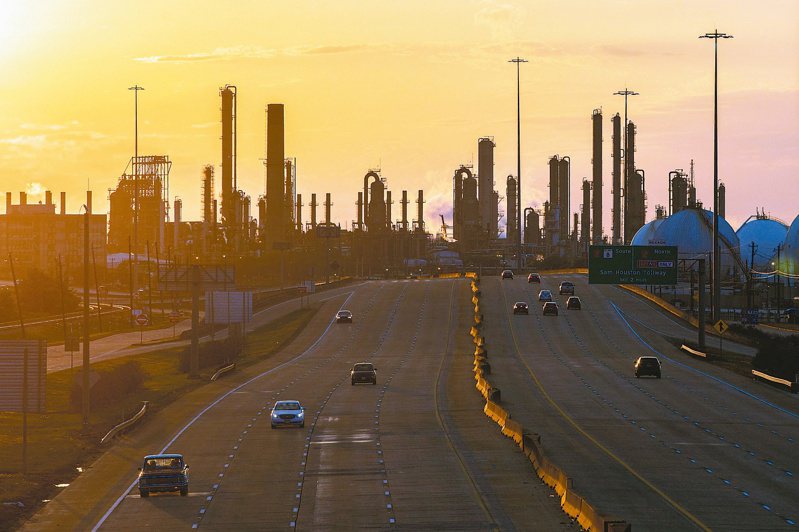紐時賞析/能源凜冬將至 別責怪綠能

A Scary Energy Winter Is Coming. Don’t Blame the Greens.
能源凜冬將至 別責怪綠能
Every so often the tectonic geopolitical plates that hold up the world economy suddenly shift in ways that can rattle and destabilize everything on the surface. That’s happening right now in the energy sphere.
有時候,承載世界經濟的地緣政治板塊會突然移動,把地表每樣東西搖得嘎嘎作響。這種事現在就在能源領域發生。
Several forces are coming together that could make Vladimir Putin the king of Europe, enable Iran to thumb its nose at America and build an atomic bomb, and disrupt European power markets enough that the upcoming United Nations climate conference in Glasgow, Scotland, could suffer blackouts owing to too little clean energy.
有幾股勢力正在匯聚,能使俄國總統普亭成為歐洲之王,使伊朗有本錢不把美國放在眼裡,進而造出原子彈,並足以打亂歐洲能源市場,讓即將登場的英國蘇格蘭格拉斯哥聯合國氣候大會可能會因為潔淨能源太少而停電。
Yes, this is a big one.
沒錯,問題很大。
Natural gas and coal prices in Europe and Asia just hit their highest levels on record, oil prices in America hit a seven-year high and U.S. gasoline prices are up $1 a gallon from last year. If this winter is as bad as some experts predict — with some in the poor and middle classes unable to heat their homes — I fear we’ll see a populist backlash to the whole climate/green movement. You can already smell that coming in Britain.
歐亞兩洲的天然氣和煤價剛剛達到史上最高,美國原油價格創七年新高,而汽油價格每加侖比去年上漲1美元。如果今年冬天跟一些專家預測的一樣糟,一些貧窮和中產階級人家負擔不起取暖費用,我擔心會出現針對整個氣候和綠能運動的民粹反彈。在英國已經可以嗅到這個跡象。
How did we get here? In truth, it’s a good-news-bad-news story.
我們怎會走到這一步?其實,這是個好消息壞消息都有的故事。
The good news is that every major economy has signed onto reducing its carbon footprint by phasing out dirtier fuels like coal to heat homes and to power industries. The bad news is that most nations are doing it in totally uncoordinated ways, from the top down, and before the market has produced sufficient clean renewables like wind, solar and hydro.
好消息是,每個主要經濟體都已同意,透過逐步淘汰煤炭這類比較髒的燃料給家庭取暖和給產業供電,減少碳足跡。壞消息則是,多數國家這麼做的時候完全沒有互相協調,由上而下執行,而且市場還沒製造出足夠多的風力、太陽能和水力等清潔能源。
But how did the bad-news side of this story emerge so fast?
這個故事的壞消息面為何這麼快出現?
Blame COVID-19. First, the pandemic erupted and signaled to every major economy that we were headed for a deep recession. This sent prices of all kinds of commodities, including oil and gas, into downward spirals.
要怪新冠肺炎。首先,疫情爆發,對每個重要經濟體而言意味我們正走向深度衰退,使原油、天然氣等各類大宗商品價格走軟。
This, in turn, led banks to choke off investment in new natural gas capacity and crude wells after seven years of already declining investments in these hydrocarbons because of lousy returns.
這進而使銀行停止投資擴充天然氣產能和油井。銀行已減少投資這些碳氫化合物達七年,因為報酬率很差。
As Bill Gates points out in his smart book “How to Avoid a Climate Disaster,” the only way to reach our climate targets is to shift production of all the big heavy industries, like steel, cement and automobiles, as well as how we heat our homes and power our cars, to electricity generated from clean energy. Safe and affordable nuclear power has to be part of our mix because, Gates argues, “it is the only carbon-free, scalable energy source that’s available 24 hours a day.”
就像微軟創辦人蓋茲在他那本睿智的書「如何避免氣候災難」指出的,達成氣候目標的唯一方法是,改變所有重工業如鋼鐵、水泥、汽車業等的生產方式,以及我們在家取暖和為愛車提供動力的方式,轉而用潔淨能源發電。蓋茲主張必須接納安全可負擔的核能,因為「這是唯一不產生二氧化碳又能擴增的能源來源,每天24小時供應」。
文/Thomas L. Friedman 譯/李京倫
說文解字看新聞
【李京倫】
本文作者佛里曼是紐約時報專欄作家,因為傑出的新聞報導及評論成就,拿過三座普立茲獎,著有「世界是平的」、「世界又熱又平又擠」等暢銷書,是具影響力的意見領袖。
他指出,原油、汽油、煤、天然氣等價格高漲,可能會讓一些貧窮和中產階級家庭無法取暖,這不能怪綠能,原因是各國著手淘汰煤電時,綠能發展卻還沒跟上。
本文開頭就用板塊移動造成地震比喻地緣政治變化,既營造宏大畫面,又使這篇談能源的文章變有趣。第二段繼續談一些出乎意料的可能性,引人入勝。
every so often是偶爾、有時。sign onto是同意、支持。
downward spiral是指某物持續減少、下降、降低或惡化。相反的則是upward spiral,指某物持續增大、增加、增強。in turn在此是「因此、進而」。
延伸閱讀
贊助廣告
商品推薦
udn討論區
- 張貼文章或下標籤,不得有違法或侵害他人權益之言論,違者應自負法律責任。
- 對於明知不實或過度情緒謾罵之言論,經網友檢舉或本網站發現,聯合新聞網有權逕予刪除文章、停權或解除會員資格。不同意上述規範者,請勿張貼文章。
- 對於無意義、與本文無關、明知不實、謾罵之標籤,聯合新聞網有權逕予刪除標籤、停權或解除會員資格。不同意上述規範者,請勿下標籤。
- 凡「暱稱」涉及謾罵、髒話穢言、侵害他人權利,聯合新聞網有權逕予刪除發言文章、停權或解除會員資格。不同意上述規範者,請勿張貼文章。













FB留言